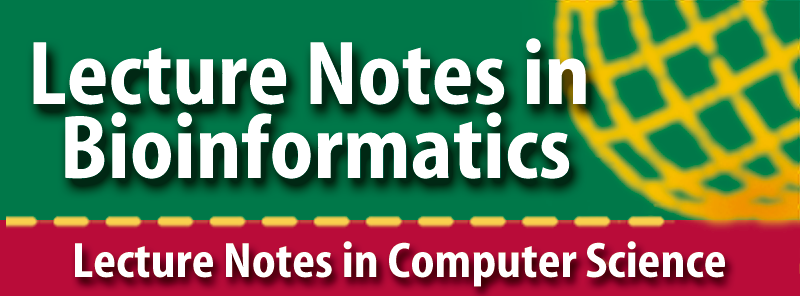Registration
Plenary Talks
| Prof. Xavier Estivill |
|---|
|
Prof. Xavier Estivill
He was also the director of the Genes and Disease programme (2002-2012), which comprised 5 research groups (Murine Models of Disease, Neurobehavioral Analysis, Genetic Causes of Disease, Gene therapy, and Gene Function). This programme was supported by the Spanish Ministry of Health (and the Catalan Government (Generalitat de Catalunya) and has contributed to the ENCODE project and to the structural genome variation project. Xavier Estivill is currently the group leader of the Genomics and Disease group in the Centre for Genomic Regulation (CRG) and Head of the Genomics and Personalized Medicine Unit, University Hospital Quiron Dexeus, Women's Health Department (Spain). His research group is focused on the evaluation of how different types of genetic variants (single nucleotide variants, structural variations, mainly copy number variants, and insertion/deletion variants, including transposable elements) contribute to common and rare human disorders. They are also exploring the contribution of epigenetic modifications and non-coding RNA pathways in complex diseases, mainly neuropsychiatric and neurodegenerative disorders. They approach these questions through very well characterized cohorts of patients and the use of high-throughput genomic platforms and functional studies including longitudinal studies of patients at different time-points and cohorts in which exposure to environment has been monitored. |
| Prof. Alfonso Valencia |
|---|
|
Prof. Alfonso Valencia
He is currently leader of the Structural Computational Biology Group at the Spanish National Cancer Research Centre (CNIO). This group is focused on the study of the molecular bases of cancer progression. They bring an evolutionary perspective to how global genome organisation influences tumour progression, i.e. how the interplay between genomics and epigenomics determines the cause and course of the progression of tumours. Additionally, he is a Member of the European Molecular Biology Organisation (EMBO), Founder and former Vice President of the International Society for Computational Biology . Alfonso Valencia serves on the Scientific Advisory Board of the European Molecular Biology Laboratory; the Swiss Institute for Bioinformatics, Biozentrum, Basel; the INTERPRO database; the Spanish Grant Evaluation Agency (ANEP); as well as the Steering Committee of the European Science Foundation Programme on Functional Genomics (2006-2011). Alfonso Valencia is Co-Executive Editor of Bionformatics, serves on the Editorial Board of EMBO Journal and EMBO Reports, among others. He is the Director of the Spanish National Bioinformatics Institute (INB). |
| Title: A Network Biology Approach to Therapeutics |
|---|
|
Prof. Patrick Aloy
His main scientific interests are related with the field of structural bioinformatics, developing important technologies and algorithms to solve specific problems in several bioinformatic topics. His lab in Barcelona is currently focused on understanding the molecular bases of how macromolecular complexes and cell networks operate by analyzing protein-protein interaction networks with the help of high-resolution 3D structures. They are responsible, for example, of an important and highly used database of three-dimensional interacting domains (3did), which contains a collection of high-resolution three-dimensional templates for domain-domain interactions. |
|
Abstract: Network and systems biology offer a novel way of approaching therapeutics by developing models that consider the global physiological environment of protein targets, and the effects of modifying them, without losing the key molecular details. In this talk, I will discuss two recent projects developed in the lab that exploit global properties of complex systems. In particular, I will present a computational network biology strategy, based on the quantification of pathway crosstalk inhibition in therapeutic networks, to discover synergistic drug combinations for breast cancer treatment. In addition, I will show how taking a chemo-centric view of human health, which does not require detailed mechanistic information, we can build networks of human conditions able to predict disease comorbidities, as well as identifying potential drug side effects and opportunities for drug repositioning. |
-
IWBBIO. LNBI 9043 is now available online

-
IWBBIO. LNBI 9044 is now available online

-
Plenary Talk:
Prof. Xavier Estivill
Genomics and Disease group in the Centre for Genomic Regulation (CRG)
-
Plenary Talk:
Prof. Alfonso Valencia
Spanish National Cancer Research Center (CNIO)
-
Plenary Talk:
A Network Biology Approach to Therapeutics
Prof. Patrick Aloy,
IRB Barcelona
-
Full contributions in IWBBIO 2015 will be published in Lecture Notes in Bioinformatics

- Online Registration The registration platform is open now!
Tweets from @iwbbio15









 1
1 2
2 3
3 4
4 5
5 6
6 7
7 8
8 9
9 Xavier Estivill obtained his BSc in Medicine and Surgery from the Autonomous University of Barcelona (1979). He was awarded the Haematology Specialist at
Santa Creu i Sant Pau Hospital (1985). He was a research fellow and associated professor at the Biochemistry and Molecular Genetics department in the St. Mary's Hospital-Medical School (London). We obtained his PhD in Medicine
from the Autonomous University of Barcelona (1987) and PhD in Genetics from the University of London (1995). He was awarded with the "Premio de Investigacion Reina Sofia" and "Premio Severo Ochoa de Investigacion Biomedica"
(1995).
Xavier Estivill obtained his BSc in Medicine and Surgery from the Autonomous University of Barcelona (1979). He was awarded the Haematology Specialist at
Santa Creu i Sant Pau Hospital (1985). He was a research fellow and associated professor at the Biochemistry and Molecular Genetics department in the St. Mary's Hospital-Medical School (London). We obtained his PhD in Medicine
from the Autonomous University of Barcelona (1987) and PhD in Genetics from the University of London (1995). He was awarded with the "Premio de Investigacion Reina Sofia" and "Premio Severo Ochoa de Investigacion Biomedica"
(1995).  Alfonso Valencia is a biologist with formal training in population genetics and biophysics received from the Universidad Complutense de Madrid. He was awarded his PhD in 1988 at the Universidad Autónoma de Madrid.
He was a Visiting Scientist at the American Red Cross Laboratory in 1987 and from 1989-1994 was a Postdoctoral Fellow at the laboratory of C. Sander at the European Molecular Biology Laboratory (EMBL), Heidelberg (Germany). In 1994 Alfonso Valencia set up the Protein Design Group at the Centro Nacional de Biotecnología, Consejo Superior de Investigaciones Científicas (CSIC) in Madrid where he was appointed as Research Professor in 2005.
Alfonso Valencia is a biologist with formal training in population genetics and biophysics received from the Universidad Complutense de Madrid. He was awarded his PhD in 1988 at the Universidad Autónoma de Madrid.
He was a Visiting Scientist at the American Red Cross Laboratory in 1987 and from 1989-1994 was a Postdoctoral Fellow at the laboratory of C. Sander at the European Molecular Biology Laboratory (EMBL), Heidelberg (Germany). In 1994 Alfonso Valencia set up the Protein Design Group at the Centro Nacional de Biotecnología, Consejo Superior de Investigaciones Científicas (CSIC) in Madrid where he was appointed as Research Professor in 2005. Born in Barcelona in 1972. He obtained his BSc in Biochemistry (1996), MSc in Biotechnology (1998) and PhD in Biochemistry & Molecular Biology (2000) from the Autonomous University of Barcelona.
He then joined the Structural Bioinformatics Group at the European Molecular Biology Laboratory (EMBL, Heidelberg, Germany) in 2001 where he did his postdoctoral training and became Staff Scientist (2003).
Since April 2006, Patrick Aloy is an ICREA Research Professor and Principal Investigator of the Structural Bioinformatics Lab in the Institute for Research in Biomedicine (IRB Barcelona).
Born in Barcelona in 1972. He obtained his BSc in Biochemistry (1996), MSc in Biotechnology (1998) and PhD in Biochemistry & Molecular Biology (2000) from the Autonomous University of Barcelona.
He then joined the Structural Bioinformatics Group at the European Molecular Biology Laboratory (EMBL, Heidelberg, Germany) in 2001 where he did his postdoctoral training and became Staff Scientist (2003).
Since April 2006, Patrick Aloy is an ICREA Research Professor and Principal Investigator of the Structural Bioinformatics Lab in the Institute for Research in Biomedicine (IRB Barcelona).